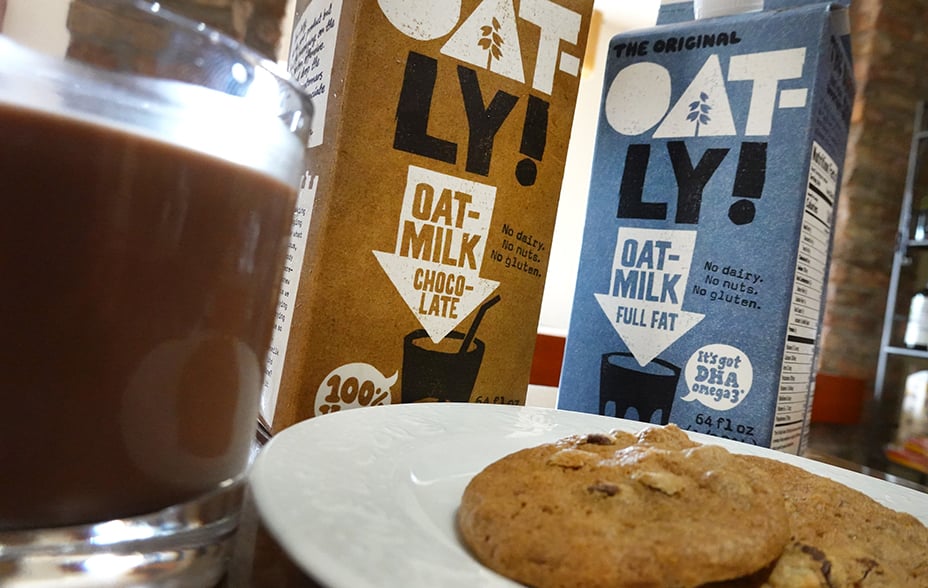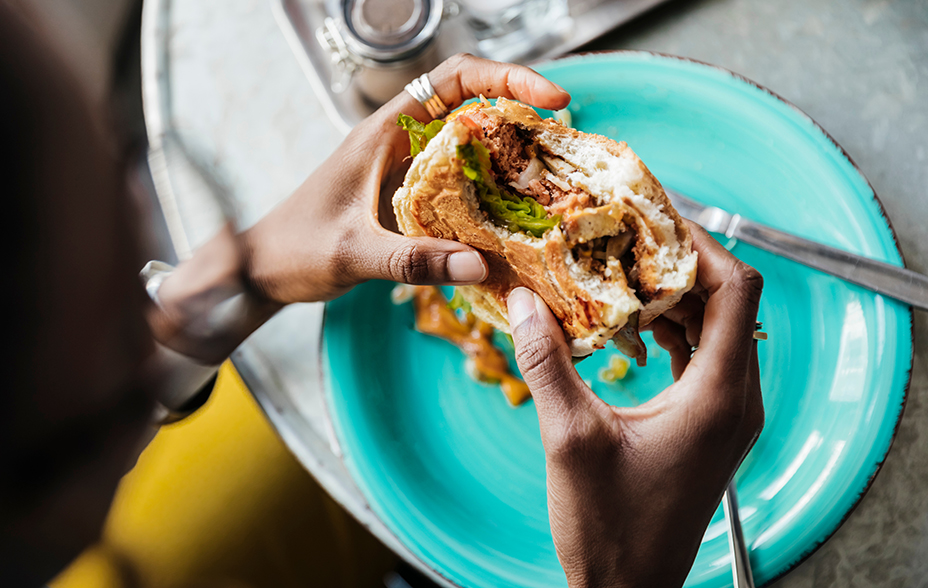Scientists have long informed the civilisation that to survive, they must switch both the burning machine and the killing machine to idle, or even better, off. The burning machine has begun the power down, but the latter is still running at full throttle. Turning the dial down on the killing machine means moving the population towards a place called Veganville. There is room there for everyone, and in theory the mass migration requires no new infrastructure, investments, or technologies. It sounds like a no brainer. Right?
Not quite. While Veganville is generally a healthy and compassionate place to live, it is still considered unfamiliar territory and difficult to get to. Sparsely populated, myths about the inadequacies of Veganville and its residents abound. Worse still, despite acknowledging the gravity of the threats facing the civilisation, the overlords have been subsidising people to live elsewhere, thanks to the strong lobby of businesses based in Carnist Country, on the other side of the civilisation.
Will they decommission the killing machine and find their happy ever after? To answer this, let’s explore the geography of Veganville, its neighbouring regions and the routes that lead to it.
Mapping veganville and the surrounding regions
There is the Green Gorge. Settlers congregate here primarily because they are worried about the environmental impact of running the killing machine. The region has seen a big influx lately, thanks to the harder to ignore changes in climate, and campaigns led by high-profile influencers like Greta and David.
While a key concern is the release of the warming gases that affect the whole civilisation1, there is a multitude of other devastating local and regional ecological problems prompting people to move here. Those in the Green Gorge often seek to rely less on the killing machine, or opt to fuel it with more efficient feedstock, such as Junglefowls in place of Aurochs. A small but increasing number of these settlers go on to live in Veganville (becoming the ‘Green Vegans’). Currently, the Green Gorge is probably the most accessible gateway into Veganville, but there hasn’t been a census to verify this.
On the other side is Health Hill. Some of these settlers also move to Veganville eventually (the ‘Health Vegans’). While doctors and nutritionists debate whether you really need to live in Veganville to enjoy optimal health, there’s a strong consensus at least that living near it is good for your health – it helps shield residents from many of the sicknesses that have become more common among the more affluent in the past few decades. Aside from individual health reasons, residents might point to the recent pandemic and the looming antibiotic resistance crisis as warnings that it is time to move to Health Hill.
That said, many don’t live here permanently – the temptations and traditions of Carnist Country are difficult to resist. Rather, the Health Hill seems to be an increasingly popular holiday destination, especially during peak seasons such as January and Mondays.
Then there’s Veganville. On the far side, away from Health Hill and Green Gorge, is Ethics Cliff. Despite the best efforts of zealous activists, and coverage of the route growing in social media and in hit documentaries such as Dominion, Conspiracy and Seaspiracy, this is perhaps the least accessible route to Veganville. Maybe that’s why the few that come by this route tend to be the most ardent residents and rarely, if ever, leave, even for short breaks (the ‘Ethical Vegans’). They think not being here is morally indefensible.
The reality is that all these groups mingle, and often find themselves chiming with each other. Having moved to the neighbouring Green Gorge or Health Hill, Veganville itself can seem a bit more agreeable – there is less incentive for heroic mental gymnastics to justify not going there. Over time, some Green/Health Vegans may begin to identify themselves as Ethical Vegans too. As these places become more populous, the word spreads and these places become up and coming places to live – already, shops and businesses are beginning to spring up in Veganville, driven by a recent surge of private investments. Eventually, even the overlords may support its development, as they did before in preparation for the switch off of the burning machine.
1. There’s some debate as to what percentage of total annual greenhouse gas (GHG) emissions the killing machine accounts for, but depending on your definition and methodology, it ranges from mid-teens (UN Food and Agriculture Organisation), to half (WorldWatch Institute), or nearly 90 per cent (Rao, 2021) if you take into account the carbon sequestration opportunity cost of changing land use.
Back to planet earth and investing
The above conceptualisation may aid our thinking about the positioning, bottlenecks and impact of companies exposed to the plant-based food theme; as well as the nature of the broader societal transition towards a plant-based lifestyle. By overlaying companies on the above map, we can hypothesise how they may be shaping the plant-based landscape. We can see that vegan/vegetarian/flexitarian groups may have different preferences depending on their primary motivations behind making their dietary changes and we should also be mindful that the companies catering to a plant-based diet are currently selling primarily to meat eaters.
Understanding the psychology and tastes of the different groups is particularly relevant as we study the contrasting approaches of plant-based food companies. At the one end are companies such as the Very Good Food Company. It is one among many brands, including private label, that offer plant-based meat alternatives. The products may come in the physical form of conventional products (sausages, burgers etc), but they make no serious attempt to replicate the texture and taste of the ‘real thing’. Think a combination of mashed up beans, chickpeas and/or tofu. Plant-based milks arguably also come under this category. The challenge is to find a competitive edge among these companies, for the minimally-processed nature of this category means genuine and sustainable product differentiation may be more difficult to come by. Others, led most notably by Beyond Meat and Impossible Burger, go the extra mile to replicate conventional meat through extensive R&D, potentially helping meat-eaters transition towards a plant-based diet. These are also considered highly processed foods, meaning they are distrusted by some (including the more health conscious).

© Getty Images North America.
Case study
Specifically for the oat-drink company Oatly, the company’s impact goes beyond the reduced carbon footprint of its products versus dairy; there’s also the indirect (but more significant?) impact of prompting others to take a step towards a plant-based diet. Oat milk is an excellent ‘gateway product’ (trying oat milk in your coffee is low risk compared to cooking a Tofurkey for Thanksgiving). Its provocative packaging/ad campaigns are effective conversation starters. From the help-dad.com to the infamous “wow, no cow” Super Bowl ad that directly call for personal action, the company’s own activism helps break down regulatory barriers and its products appeal broadly to the health conscious too: ‘just like milk, but made for humans’.
So, in mapping terms, Oatly is building numerous eastwards bridges and roads; and it appeals to a broad set of consumers (highlighted yellow) – it isn’t just about lactose intolerance. The relevance of some of the other plant-based companies, however, may be narrower. A plant-based burger joint may do less well in Health Hill than the Green Gorge. Likewise, lab-grown A5 wagyu steak may sell well at Middle-Class Green Gorge, but it will be frowned upon by the strict vegans living on the far side of Veganville – some of whom follow a minimalist lifestyle.

Powering down the killing machine
In terms of the nature and pace of the potential transition away from animal agriculture, my current hypothesis is that the transition will be gradual, and then sudden. It may be similar to what we are witnessing in the auto industry, where within months of each other, a wave of established car makers have committed to going fully electric over time. If this is the case, the food industry is currently in the experimenting phase, perhaps similar to where autos were 10 years ago?
The key ingredients to trigger a tipping point scenario are falling into place. First, there are multiple extremely compelling routes to Veganville – both the criss-crossing paths across Green Gorge, Health Hill and Ethics Cliff and their interconnectedness (as well as to meat-eaters through social contact).
Second, inertia for the status quo is incredibly powerful: no strong inertia means no tipping point. The underlying foundation of the current food system, ie animal agriculture economics and the justification for it, is weak.
Third, we are seeing progress stepping up on multiple fronts, from growing public awareness of the issue, a wave of emission targets set by government and companies, the scaling up and lowering cost of credible (tasty) alternatives, to conventional products potentially facing persistent cost inflation and other pressures. More animal welfare/waste treatment controls equal higher costs. The EU, for example, has recently announced the phasing out of chicken cages – this is even before many of the profound negative externalities of animal agriculture are seriously ‘priced in’. To my mind, animal agriculture is the sector with the biggest sustainability challenge in the world, bar none.
Finally, there is a distinct generation divide in preferences – millennials and gen Z are significantly more inclined to embrace a more plant-based diet/lifestyle, and these preferences will grow with time – pushing the transition ever closer to the tipping point. Returning to the auto industry as our reference point, it is encouraging to note that multiple car makers (eg Tesla, Volvo and MINI) are now committing to leather-free interiors. Others are at least offering options, especially for electric vehicles (EVs), loosening that archaic link between dead animal skins and luxury, and providing another prompt for thought as EVs become mainstream.
So, the current scenario is akin to persistently lighting multiple fires in an increasingly dry and windy forest – the little fires (which would have likely died down individually) will join up and spread very quickly once past a certain threshold. We have a phase change. We may well be approaching that tipping point now, as ‘griddle parity’, as coined by Agronomics’ Jim Mellon, nears in the next few years. A gradual transition that many forecast (including some involved in alternative meat industry) seem implausible to me.
Investing in veganville
Given the numbers and the early stage nature of the opportunity, most listed plant-based food companies are small or micro-caps. The opportunity set is currently relatively sparse, but it is expanding. The numbers of private companies are increasing fast, especially on the west coast of the US, Israel – which has the highest percentage of vegans globally – and Singapore, where food security is an issue. As investors, we are always excited to study disruptions and investigate opportunities that they bring – from start-up plant-based food brands, to other plant-based products such as mushroom leather, or other opportunities along the supply chain such as fermentation equipment. We therefore look forward to learning about the companies leading this societal transition in the coming years. At the same time, we recognise that the plant-based transition is fundamentally about a quantum leap in food production efficiency. Unlike the energy transition, which calls for significant investments in infrastructure and technologies, the move to primarily plant-based diets involve a substantial reduction in overall demand on agriculture, and we need to digest the broader implications of this dynamic.
Aside from seeking pure-play plant-based opportunities, we need to think through the potential role of those in the existing supply chain too, including established food companies, and even meat and dairy incumbents. It is easy to be cynical given the track record and tobacco-like strategic playbook of animal agriculture industry in the past, but things flip quickly in a tipping point scenario. Elements of the innovator’s dilemma don’t all necessarily apply, and indeed some may be well-positioned to make an outsized impact in this transition, even if they are only shifting incrementally for now. For example, the impact of McDonalds rolling out its McPlant burger will probably dwarf that of a start-up plant-based fast food chain. This general point has been made in our recent calls with several industry insiders such as listed company Burcon NutraScience (which commercialises technologies to extract plant protein), and non-profit organisation The Good Food Institute (which works with industry partners large and small to promote alternative proteins). After all, some food companies are simply not that tied to animal agriculture (unlike Kodak was to film). As the CEO of Tyson Foods (rebranded a ‘protein company’ in 2018) said, ‘If we can grow the meat without the animal, why wouldn’t we?
Aside from plant-based meat and dairy analogs, there is also the emerging set of cultivated meat companies in development (or ‘clean’, or ‘lab-grown’ meats) – the UK-listed Agronomics invests in a few, for example, and there are also various start-ups, including the private Perfect Day, looking to make dairy milk ex vivo. With an initial public offering (IPO) reportedly in the works, Eat Just has already launched lab-grown chicken in the market having gained approval nearly a year ago in Singapore. The advantage of cultivated meat is that the product is ‘real’, but there are still significant technical, regulatory, and cost challenges – particularly with whole cuts of meat. It remains to be seen if these eventually appeal to the health seekers and more established vegans too – are these analogous to a nicotine patch? Do we really have to replicate meat on a cellular level? Ultimately, nobody needs plant-based burgers or sausages, or indeed any ‘direct’ meat analogues. While some ethical vegans may not object to cultivated meat from a moral standpoint (some do), it seems likely many simply won’t have the desire to eat them. Likewise, for the health seekers, why eat something considered carcinogenic and addictive (among other health-related concerns) anyway?
This could also be an intriguing long-term opportunity – capital is being deployed to figure out ‘clean’ versions of existing common meats, understandably; and once society breaks that arbitrary psychological association of certain set of animals with food as many vegans have – maybe we will all be eating clean Galapagos tortoises, penguin eggs, or megalodon fin soup regularly one day. One start-up in Australia called Vox is already pursuing this approach, and this may be a valid way to build a competitive edge.
Risk factors
The views expressed in this article are those of Brian Lum and should not be considered as advice or a recommendation to buy, sell or hold a particular investment. They reflect personal opinion and should not be taken as statements of fact nor should any reliance be placed on them when making investment decisions.
This communication was produced and approved in October 2021 and has not been updated subsequently. It represents views held at the time of writing and may not reflect current thinking.
Potential for Profit and Loss
All investment strategies have the potential for profit and loss, your or your clients’ capital may be at risk. Past performance is not a guide to future returns.
Stock Examples
Any stock examples and images used in this article are not intended to represent recommendations to buy or sell, neither is it implied that they will prove profitable in the future. It is not known whether they will feature in any future portfolio produced by us. Any individual examples will represent only a small part of the overall portfolio and are inserted purely to help illustrate our investment style.
This article contains information on investments which does not constitute independent research. Accordingly, it is not subject to the protections afforded to independent research, but is classified as advertising under Art 68 of the Financial Services Act (‘FinSA’) and Baillie Gifford and its staff may have dealt in the investments concerned.
Important information
Baillie Gifford & Co and Baillie Gifford & Co Limited are authorised and regulated by the Financial Conduct Authority (FCA). Baillie Gifford & Co Limited is an Authorised Corporate Director of OEICs.
Baillie Gifford Overseas Limited provides investment management and advisory services to non-UK Professional/Institutional clients only. Baillie Gifford Overseas Limited is wholly owned by Baillie Gifford & Co. Baillie Gifford & Co and Baillie Gifford Overseas Limited are authorised and regulated by the FCA in the UK.
Persons resident or domiciled outside the UK should consult with their professional advisers as to whether they require any governmental or other consents in order to enable them to invest, and with their tax advisers for advice relevant to their own particular circumstances.
All information is sourced from Baillie Gifford & Co and is current unless otherwise stated.
The images used in this article are for illustrative purposes only.
Europe
Baillie Gifford Investment Management (Europe) Limited provides investment management and advisory services to European (excluding UK) clients. It was incorporated in Ireland in May 2018 and is authorised by the Central Bank of Ireland. Through its MiFID passport, it has established Baillie Gifford Investment Management (Europe) Limited (Frankfurt Branch) to market its investment management and advisory services and distribute Baillie Gifford Worldwide Funds plc in Germany. Similarly, it has established Baillie Gifford Investment Management (Europe) Limited (Amsterdam Branch) to market its investment management and advisory services and distribute Baillie Gifford Worldwide Funds plc in The Netherlands. Baillie Gifford Investment Management (Europe) Limited also has a representative office in Zurich, Switzerland pursuant to Art. 58 of the Federal Act on Financial Institutions (‘FinIA’). It does not constitute a branch and therefore does not have authority to commit Baillie Gifford Investment Management (Europe) Limited. It is the intention to ask for the authorisation by the Swiss Financial Market Supervisory Authority (FINMA) to maintain this representative office of a foreign asset manager of collective assets in Switzerland pursuant to the applicable transitional provisions of FinIA. Baillie Gifford Investment Management (Europe) Limited is a wholly owned subsidiary of Baillie Gifford Overseas Limited, which is wholly owned by Baillie Gifford & Co.
Hong Kong
Baillie Gifford Asia (Hong Kong) Limited 柏基亞洲(香港)有限公司 is wholly owned by Baillie Gifford Overseas Limited and holds a Type 1 and a Type 2 license from the Securities & Futures Commission of Hong Kong to market and distribute Baillie Gifford’s range of collective investment schemes to professional investors in Hong Kong. Baillie Gifford Asia (Hong Kong) Limited 柏基亞洲(香港)有限公司 can be contacted at Suites 2713–2715, Two International Finance Centre, 8 Finance Street, Central, Hong Kong. Telephone +852 3756 5700.
Shanghai
Baillie Gifford Overseas Investment Fund Management (Shanghai) Limited
柏基海外投资基金管理(上海)有限公司(‘BGQS’) is a wholly owned subsidiary of BGIMS incorporated in Shanghai as a limited liability company with its unified social credit code of 91310000MA1FL7JFXQ. BGQS is a registered Private Fund Manager with AMAC with a registration code of P1071708. BGQS has been approved by Shanghai Municipal Financial Regulatory Bureau for the Qualified Domestic Limited Partners (QDLP) Pilot Program, under which it may raise funds from PRC investors for making overseas investments.
South Korea
Baillie Gifford Overseas Limited is licensed with the Financial Services Commission in South Korea as a cross border Discretionary Investment Manager and Non-discretionary Investment Adviser.
Japan
Mitsubishi UFJ Baillie Gifford Asset Management Limited (‘MUBGAM’) is a joint venture company between Mitsubishi UFJ Trust & Banking Corporation and Baillie Gifford Overseas Limited. MUBGAM is authorised and regulated by the Financial Conduct Authority.
Australia
Baillie Gifford Overseas Limited (ARBN 118 567 178) is registered as a foreign company under the Corporations Act 2001 (Cth) and holds Foreign Australian Financial Services Licence No 528911. This document is provided to you on the basis that you are a ‘wholesale client’ within the meaning of section 761G of the Corporations Act 2001 (Cth) (‘Corporations Act’). Please advise Baillie Gifford Overseas Limited immediately if you are not a wholesale client. In no circumstances may this document be made available to a ‘retail client’ within the meaning of section 761G of the Corporations Act.
This document contains general information only. It does not take into account any person’s objectives, financial situation or needs.
South Africa
Baillie Gifford Overseas Limited is registered as a Foreign Financial Services Provider with the Financial Sector Conduct Authority in South Africa.
North America
Baillie Gifford International LLC is wholly owned by Baillie Gifford Overseas Limited; it was formed in Delaware in 2005 and is registered with the SEC. It is the legal entity through which Baillie Gifford Overseas Limited provides client service and marketing functions in North America. Baillie Gifford Overseas Limited is registered with the SEC in the United States of America.
The Manager is not resident in Canada, its head office and principal place of business is in Edinburgh, Scotland. Baillie Gifford Overseas Limited is regulated in Canada as a portfolio manager and exempt market dealer with the Ontario Securities Commission (‘OSC’). Its portfolio manager licence is currently passported into Alberta, Quebec, Saskatchewan, Manitoba and Newfoundland & Labrador whereas the exempt market dealer licence is passported across all Canadian provinces and territories. Baillie Gifford International LLC is regulated by the OSC as an exempt market and its licence is passported across all Canadian provinces and territories. Baillie Gifford Investment Management (Europe) Limited (‘BGE’) relies on the International Investment Fund Manager Exemption in the provinces of Ontario and Quebec.
Oman
Baillie Gifford Overseas Limited (‘BGO’) neither has a registered business presence nor a representative office in Oman and does not undertake banking business or provide financial services in Oman. Consequently, BGO is not regulated by either the Central Bank of Oman or Oman’s Capital Market Authority. No authorization, licence or approval has been received from the Capital Market Authority of Oman or any other regulatory authority in Oman, to provide such advice or service within Oman. BGO does not solicit business in Oman and does not market, offer, sell or distribute any financial or investment products or services in Oman and no subscription to any securities, products or financial services may or will be consummated within Oman. The recipient of this document represents that it is a financial institution or a sophisticated investor (as described in Article 139 of the Executive Regulations of the Capital Market Law) and that its officers/employees have such experience in business and financial matters that they are capable of evaluating the merits and risks of investments.
Qatar
The materials contained herein are not intended to constitute an offer or provision of investment management, investment and advisory services or other financial services under the laws of Qatar. The services have not been and will not be authorised by the Qatar Financial Markets Authority, the Qatar Financial Centre Regulatory Authority or the Qatar Central Bank in accordance with their regulations or any other regulations in Qatar.
Israel
Baillie Gifford Overseas is not licensed under Israel’s Regulation of Investment Advising, Investment Marketing and Portfolio Management Law, 5755–1995 (the Advice Law) and does not carry insurance pursuant to the Advice Law. This document is only intended for those categories of Israeli residents who are qualified clients listed on the First Addendum to the Advice Law.
Ref: 11120 10002940






